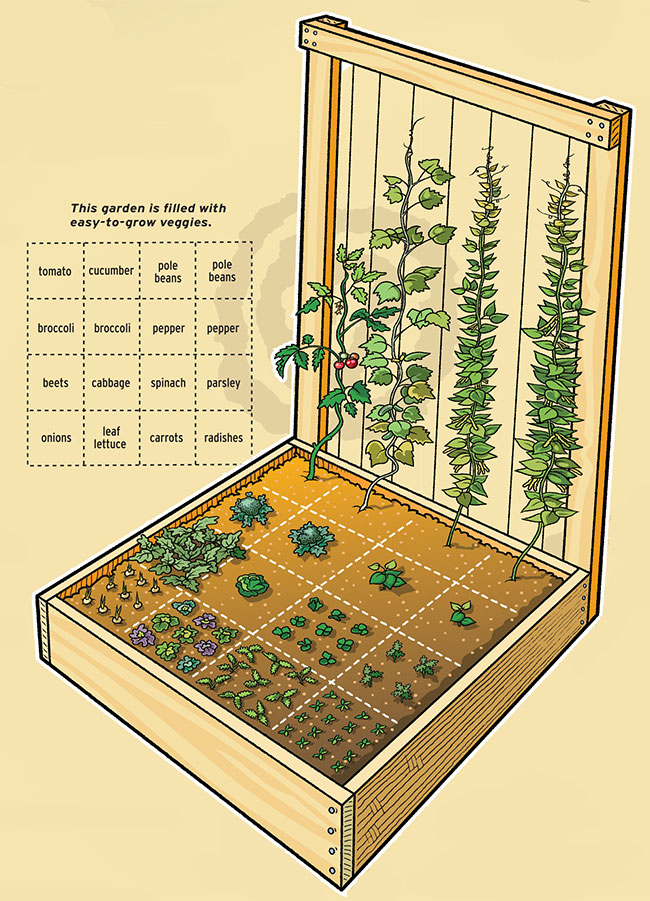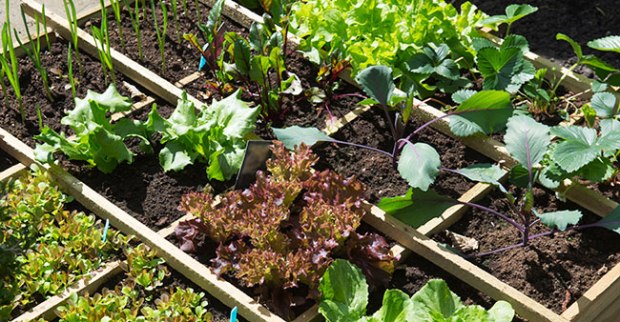How to Plant a Compact Vegetable Garden
What makes this compact garden so productive is that you will be placing plants close together in squares instead of traditional rows. You can continue to plant as you harvest.

What You’ll Need
- Hammer
- Saw
- Shovel
- Wire cutters
- Tape measure
- 4 4-foot 2-by-10’s
- 16d galvanized nails
- 2 6-foot 2-by-4’s
- 4-foot 2-by-4
- 49 feet of 12-gauge galvanized wire, cut into 7 7-foot lengths
- 8d galvanized nails
- About 1/2 cubic yard or 14 cubic feet of good garden soil
- A sunny spot for your garden
What You’ll Do
Frame
1. Using the 2-by-10’s and 16d nails, hammer together a 4-foot square.
Trellis
2. Nail the 6-foot 2-by-4’s to the back of the frame.
3. Nail the 4-foot 2-by-4 across the back of the uprights.
4. Attach the 7 wires on the back of the trellis by wrapping wires around nails.

Planting
Fill the frame with good garden soil. Divide it into 16 squares. The smaller the mature plant, the more you can plant in each square.
A Helpful Garden
Nail 5/8-inch or heavier exterior plywood to the bottom of the frame and lift the frame to table height by placing it on sturdy saw horses or legs. Once filled with soil, it will be easily accessible to a person in a wheelchair or someone who is more comfortable sitting than kneeling.
We actually board raised beds last spring, but didn’t know “what next.” So, good timing for this info, and now we’re ahead of the game. Thank you so very much!!!
rad
I am not a fan of vegies but I might try home grown ones 😀
Awesome info! Glad I found this!
amazing small space with lots of possibilities
This reminds me of the Square Foot Gardening method. If you look up that book, go for the revised version called “The All New Square Foot Garden”…or somtihng like that.
We’ve got 4 beds via Square Foot Gardening. Look it up. the soil composition is phenomenal. My son can’t get enough and I love that he’s learning to self-provide.
awsome i will try this
I’m going to try this.
Awsome
i think its a good idea